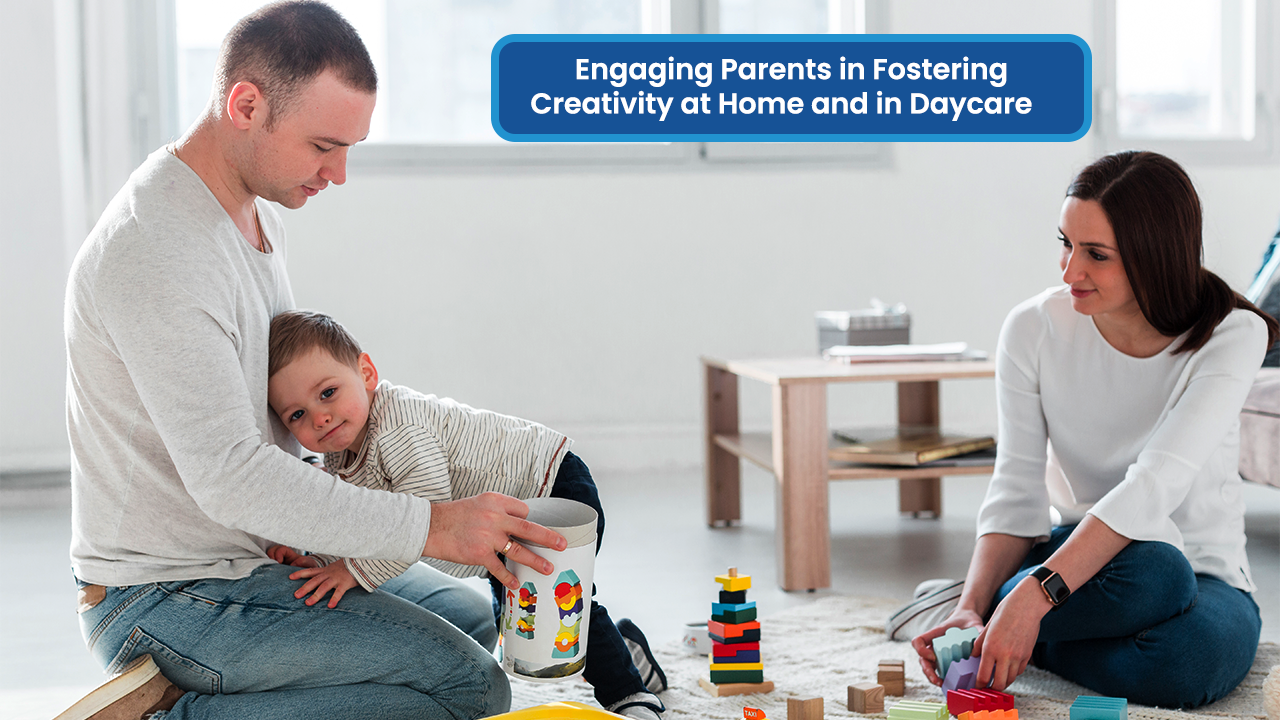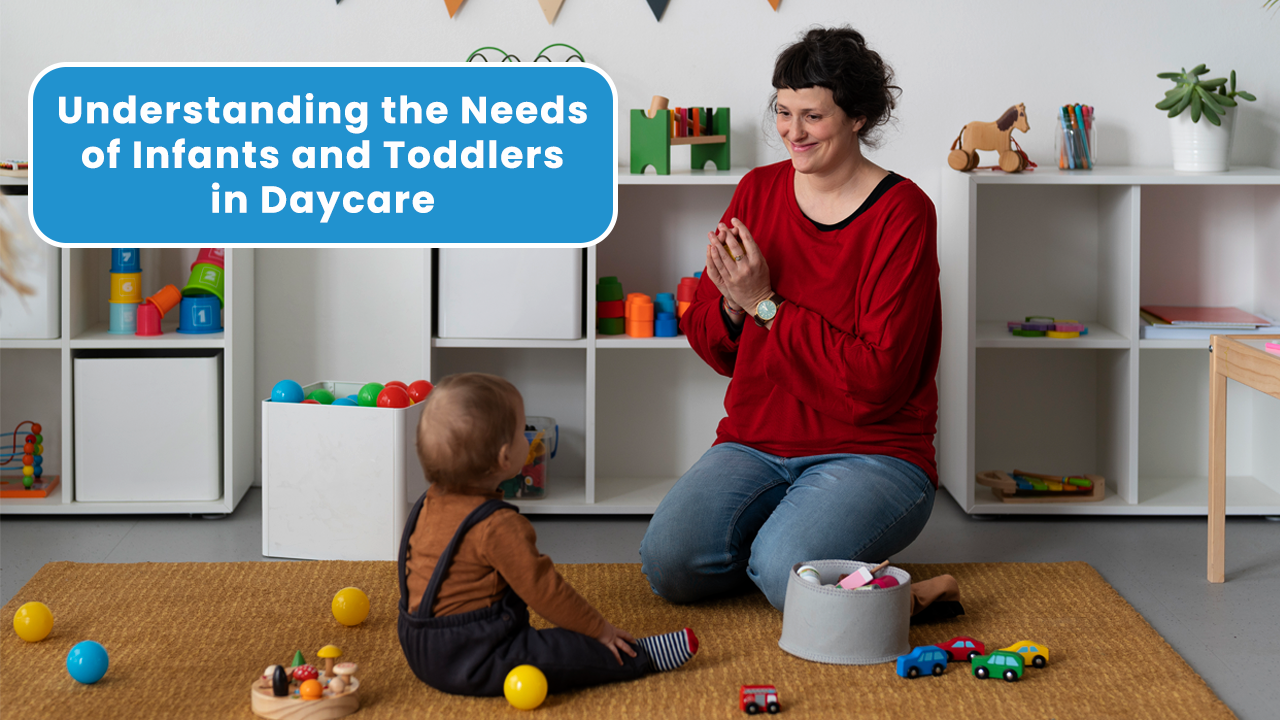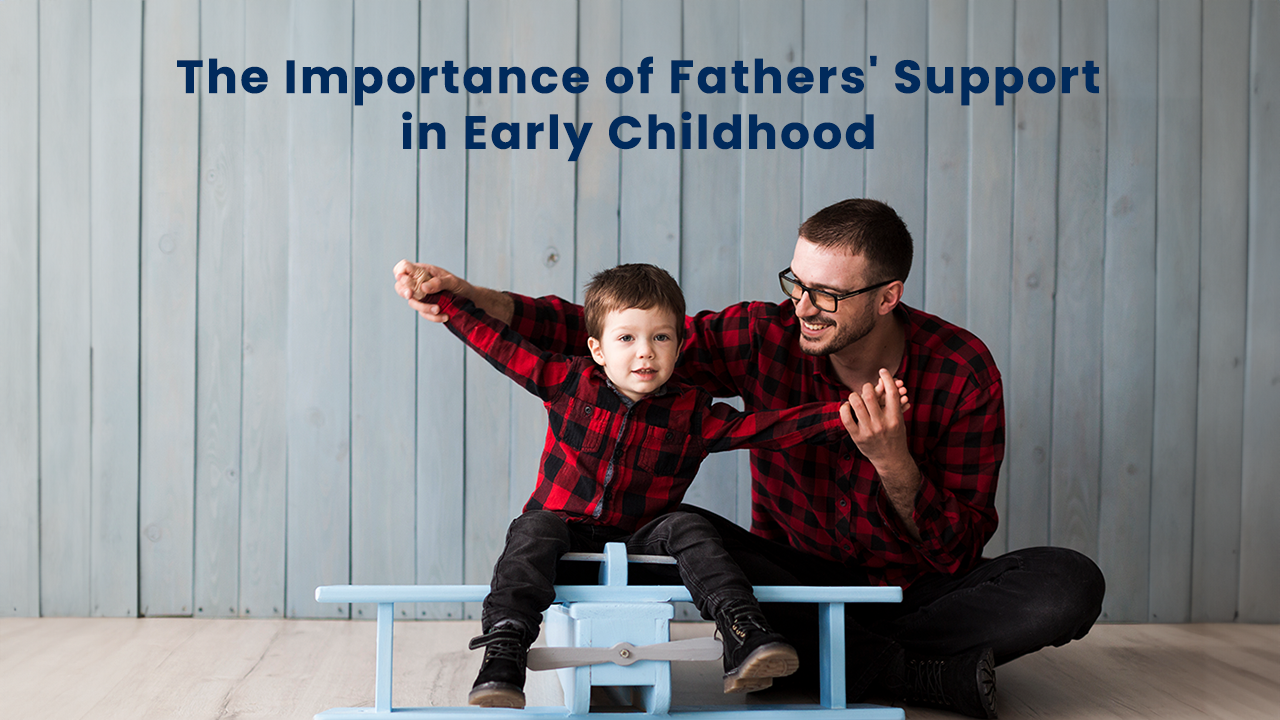
- Strategies for Engaging Parents in Fostering Creativity at Home and in Daycare
- Encourage open-ended play:
- Create a supportive environment:
- Lead by example.
- Provide exposure to the arts:
- Encourage problem-solving and critical thinking:
- Embrace outdoor exploration:
- Communicate with daycare providers:
- Celebrate diversity and individuality:
- Encourage storytelling and imaginative play:
- Incorporate mindfulness and relaxation techniques:
- How to Engage Parents in Fostering Creativity at Home and in Daycare
- Conclusion on Engaging Parents in Fostering Creativity at Home and in Daycare
In today’s rapidly evolving world, creativity is a cornerstone skill essential for navigating complexities, solving problems, and embracing innovation. While schools and daycare centers play pivotal roles in nurturing this quality, the home environment is the bedrock for fostering creativity in children. Engaging parents in this endeavor enhances the richness of children’s experiences and reinforces the significance of creativity as a lifelong asset. This blog explores the importance of engaging parents in fostering creativity at home and in daycare.
Strategies for Engaging Parents in Fostering Creativity at Home and in Daycare
Here are some effective strategies for engaging parents in fostering creativity at home and in daycare:
Encourage open-ended play:
Parents can provide children with toys and materials encouraging open-ended play, such as building blocks, art supplies, and dress-up costumes. These activities allow children to explore their interests, experiment with different ideas, and use their imagination to create unique worlds and scenarios. Learn more about the role of open-ended toys in stimulating creativity.
Create a supportive environment:
Parents can cultivate a nurturing environment that fosters and honors creativity at home. This entails allocating specific time slots for creative endeavors, establishing a dedicated art corner, and proudly showcasing children’s artistic expressions throughout the household.
Lead by example.
Parents can lead by example by engaging in creative activities and demonstrating a positive attitude towards experimentation and failure. Children who see their parents embracing creativity and taking risks are more likely to feel inspired and confident in their creative endeavors.
Provide exposure to the arts:
Exposing children to various art forms, such as music, dance, theater, and visual arts, can broaden their horizons and inspire creativity. Parents can take children to art galleries, concerts, and performances or introduce them to different types of music, books, and films at home.
Encourage problem-solving and critical thinking:
Parents can encourage problem-solving and critical thinking skills by asking open-ended questions, encouraging children to find solutions to challenges independently, and providing opportunities for hands-on learning experiences.
Embrace outdoor exploration:
Nature provides endless opportunities for creativity and exploration. Parents can encourage outdoor play and exploration, whether exploring the backyard, going for nature walks, or visiting local parks and playgrounds. Outdoor environments stimulate children’s senses and inspire imaginative play. Read more about the benefits of outdoor play for daycare children.
Communicate with daycare providers:
Effective communication between parents and daycare providers is essential in creating a cohesive approach to fostering creativity. Parents can share ideas, preferences, and concerns with daycare staff and collaborate on ways to incorporate creative activities into the daycare curriculum.
Celebrate diversity and individuality:
Every child has unique interests, strengths, and creative potential. Parents can celebrate diversity and individuality by encouraging children to express themselves authentically and honoring their unique perspectives and ideas.
Encourage storytelling and imaginative play:
Parents can foster creativity by encouraging storytelling and imaginative play at home. This can involve reading books, creating stories collaboratively, and providing props or costumes to inspire creative play scenarios. By encouraging children to use their imagination to create narratives and explore different perspectives, parents can help them develop essential storytelling skills and foster a love for creativity. Read also about the role of storytelling in early education.
Incorporate mindfulness and relaxation techniques:
In a tranquil and mindful ambiance, creativity thrives effortlessly. Parents can integrate mindfulness practices into their everyday schedules, including deep breathing exercises, yoga sessions, or moments of serene reflection. Fostering a peaceful and harmonious atmosphere at home encourages children to feel at ease, promoting an environment where they can freely explore and express their creativity without the burden of stress.
How to Engage Parents in Fostering Creativity at Home and in Daycare
Engaging parents in fostering creativity at home and in daycare is crucial for nurturing children’s imaginative abilities and preparing them for a world that values innovation and original thinking. Here are some practical tips to achieve this goal:
Parent Workshops and Seminars:
Daycare centers can organize workshops and seminars on the importance of creativity in child development. These sessions can educate parents about creative activities and techniques they can incorporate into their home routines. Providing practical tips and resources empowers parents to play an active role in fostering their child’s creativity.
Communication Channels:
Establishing open lines of communication between daycare providers and parents is essential. Regular newsletters, emails, or apps, like 360Daycare, can be used to share information about upcoming creative activities, resources, and tips for promoting creativity at home. This communication also allows parents to provide feedback and share their ideas and experiences.
Parent Involvement Days:
Hosting parent involvement days or events at daycare centers can offer parents firsthand experience of their child’s creative development. These events can include interactive workshops, art exhibitions, or performances where children showcase their creative projects. Parent involvement days strengthen the bond between parents, children, and educators, fostering a collaborative approach to nurturing creativity.
Take-Home Creative Kits:
Providing take-home creative kits can extend creative learning beyond the daycare environment. These kits can include art supplies, storybooks, or STEM-based activities with instructions for parents to engage with their children at home. Encouraging parents to spend quality time engaging in creative activities with their children fosters solid parent-child relationships and reinforces the value of creativity in everyday life.
Digital Platforms for Inspiration:
Utilizing digital platforms such as social media groups or online forums can effectively inspire parents . Daycare centers can create dedicated groups where parents can exchange tips, share photos of their children’s creative projects. Moreover, this encourages seeking inspiration from others. Digital platforms facilitate peer support and enable parents to access creative resources and activities tailored to their child’s interests and developmental stage.
Parent-Teacher Collaborations:
Establishing collaborative partnerships between parents and daycare educators is essential for creating cohesive strategies to foster creativity. Periodic meetings or parent-teacher conferences can provide opportunities to discuss children’s progress, share insights into their creative interests and strengths, and brainstorm ideas for supporting their development at home and in daycare.
Celebrating Children’s Creativity:
Recognizing and celebrating children’s creative achievements is critical to fostering a positive environment for creativity. Daycare centers can organize themed events, exhibitions, or performances where children showcase their creative projects and talents. Involving parents in these celebrations fosters a sense of pride and appreciation for their child’s creativity. This also encourages ongoing support and involvement in nurturing it further.
Conclusion on Engaging Parents in Fostering Creativity at Home and in Daycare
Fostering creativity in children is a collaborative effort that involves parents, educators, and caregivers. All work together to provide children with the tools, resources, and support they need to thrive. By embracing creativity at home and in daycare, we can empower children to become confident, innovative, and resilient individuals. They will be equipped to navigate the challenges of the 21st century with creativity and imagination. Read also about engaging parents in the preschool learning journey.


